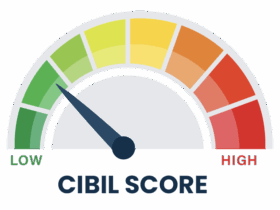In the dynamic business landscape of Singapore, companies are constantly seeking ways to optimize their operations and focus on core competencies. Outsourcing accounting services has emerged as a popular solution for businesses of all sizes, offering a range of benefits from cost savings to access to specialized expertise. This article will explore what outsourcing accounting services in Singapore entails, how it works, its benefits, tips for choosing a provider, a comparison with internal accountants, and important considerations before outsourcing.
What is Outsourcing Accounting Services in Singapore?
Outsourcing accounting services in Singapore refers to the practice of hiring external firms or professionals to handle various accounting and financial management tasks for a business. These services can range from basic bookkeeping to complex financial analysis and strategic advisory. In Singapore, a global financial hub with stringent regulatory requirements, outsourcing accounting services has become increasingly common as businesses seek to ensure compliance and efficiency in their financial operations.
How Does Outsourcing Accounting Services Work in Singapore?
The process of outsourcing accounting services typically follows these steps:
- Initial Consultation:
The outsourcing firm meets with the business to understand its specific needs, financial structure, and goals.
- Service Agreement:
A contract is drawn up outlining the scope of services, deliverables, timelines, and fees.
- Data Access and Systems Integration:
The outsourcing firm is granted access to necessary financial data and systems, often through secure cloud-based platforms.
- Regular Service Delivery:
Accounting tasks are performed according to the agreed schedule, which may include daily, weekly, or monthly activities.
- Reporting and Communication:
Regular reports are provided to the business, along with ongoing communication about financial matters.
- Compliance Management:
The outsourcing firm ensures adherence to Singapore’s accounting standards and regulatory requirements.
- Strategic Advisory:
Many outsourcing firms also offer financial analysis and strategic advice to support business decision-making.
Benefits of Hiring Outsourcing Accounting Services in Singapore
- Cost Efficiency:
Outsourcing can be more cost-effective than maintaining an in-house accounting team, especially for small to medium-sized businesses.
- Access to Expertise:
Outsourcing firms typically employ a team of specialists with diverse skills and up-to-date knowledge of Singapore’s accounting regulations.
- Time Savings:
Business owners and managers can focus on core operations while accounting tasks are handled externally.
- Scalability:
Outsourced services can easily scale up or down based on business needs, especially useful for seasonal businesses or during growth phases.
- Enhanced Compliance:
Professional firms stay current with Singapore’s evolving financial regulations, ensuring compliance and reducing risk.
- Advanced Technology:
Outsourcing firms often use the latest accounting software and technologies, which might be costly for individual businesses to implement.
- Improved Accuracy:
Specialized firms have robust processes and quality control measures, potentially reducing errors in financial reporting.
- Business Insights:
Many outsourcing firms provide valuable financial analysis and insights to support strategic decision-making.
- Continuity and Reliability:
Outsourcing reduces risks associated with employee turnover or absence in an internal accounting department.
- Fraud Prevention:
External accountants can provide an additional layer of oversight, potentially detecting and preventing fraudulent activities.
Tips for Choosing a Company Offering Outsourcing Accounting Services in Singapore
- Check Credentials and Accreditations:
Ensure the firm is accredited by relevant bodies such as the Institute of Singapore Chartered Accountants (ISCA).
- Assess Industry Experience:
Look for firms with experience in your specific industry, as they’ll understand sector-specific accounting needs.
- Evaluate Service Range:
Choose a provider that offers a comprehensive range of services that can grow with your business needs.
- Consider Technology and Security:
Assess the firm’s technological capabilities and data security measures to protect your financial information.
- Review Client Testimonials:
Look for feedback from other businesses, particularly those in similar industries or of similar size.
- Understand Pricing Structure:
Ensure the pricing model is transparent and aligns with your budget and service needs.
- Assess Communication Protocols:
Choose a firm that offers clear, regular communication and easy access to your financial data.
- Evaluate Scalability:
Ensure the firm can accommodate your business growth and changing needs over time.
- Check for Customization:
Look for providers willing to tailor their services to your specific business requirements.
- Assess Cultural Fit:
Choose a firm whose work culture and values align with your business for a smoother working relationship.
Outsourcing Accounting Services in Singapore vs. Internal Accountant: Which is Better?
The choice between outsourcing and hiring an internal accountant depends on various factors:
Outsourcing Advantages:
– Cost-effective for small to medium businesses
– Access to a diverse team of experts
– Scalable services
– Up-to-date with latest regulations and technologies
– Potential for 24/7 service availability
Internal Accountant Advantages:
– Deep understanding of the business
– Immediate availability for financial queries
– Greater control over financial processes
– Potentially better integration with other departments
– Confidentiality of financial information kept in-house
Considerations:
– Business size and complexity
– Budget constraints
– Need for specialized expertise
– Growth plans
– Industry-specific requirements
For many businesses in Singapore, a hybrid model combining an internal finance manager with outsourced accounting services can provide an optimal balance.
Things to Know Before Seeking Outsourcing Accounting Services in Singapore
- Regulatory Environment:
Understand Singapore’s accounting standards and regulatory requirements to ensure your chosen provider can meet these needs.
- Data Security Concerns:
Be prepared to discuss and implement robust data security measures when sharing financial information with an external provider.
- Transition Period:
Expect an initial transition period as the outsourcing firm familiarizes itself with your business processes and financial structure.
- Ongoing Involvement:
While outsourcing can save time, some level of involvement from your team is still necessary for effective financial management.
- Service Level Agreements:
Clearly define expectations, deliverables, and performance metrics in your service agreement.
- Cultural and Language Considerations:
Ensure the outsourcing firm can effectively communicate in your preferred language and understands your business culture.
- Integration with Existing Systems:
Consider how outsourced services will integrate with your current financial and operational systems.
- Customization Needs:
Determine if you need industry-specific or highly customized accounting services that not all providers may offer.
- Long-term Strategy:
Consider how outsourcing aligns with your long-term business strategy and growth plans.
- Audit and Compliance Support:
Understand how the outsourcing accounting services firm will support you during audits or regulatory inspections.
- Termination Clauses:
Review and understand the terms for ending the outsourcing relationship if needed in the future.
- Training Requirements:
Assess if your staff will need any training to effectively collaborate with the outsourcing team.
In conclusion, outsourcing accounting services in Singapore can offer significant benefits to businesses, including cost savings, access to expertise, and improved compliance with local regulations. However, it’s crucial to carefully consider your business needs, thoroughly vet potential providers, and understand the implications of outsourcing this critical function. By taking a strategic approach to outsourcing accounting services, businesses in Singapore can leverage external expertise to enhance their financial management, ensure compliance, and focus on core business growth. Whether opting for full outsourcing, maintaining an internal team, or adopting a hybrid model, the key is to align your accounting strategy with your overall business objectives and the unique demands of operating in Singapore’s sophisticated financial environment.








